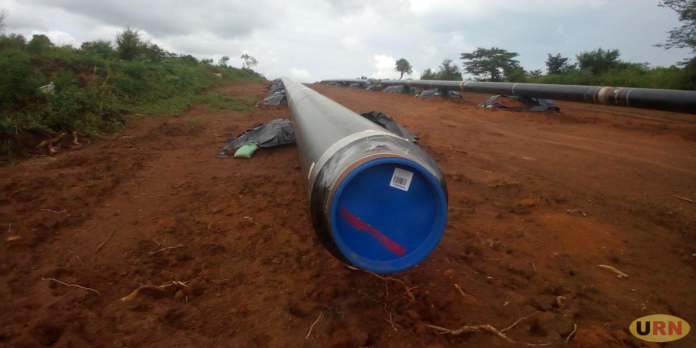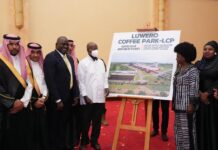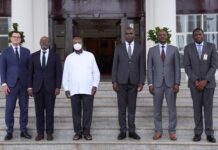By URN
The construction of the 1,443-kilometre East African Crude Oil Pipeline (EACOP), designed to transport crude oil from Uganda’s Albertine region to the Chongoleani peninsula near Tanga port in Tanzania, is progressing steadily. Estimated to cost US$5 billion, the project’s starting point is at Nyamasoga village in Kabaale parish, Hoima district, Uganda.
A joint venture between China Petroleum Pipeline Engineering Co. Ltd and Worley Limited is undertaking the construction. As of the latest update, the contractors have laid 70 kilometers of the pipeline across both Uganda and Tanzania.
The pipeline will be 24 inches in diameter, insulated, and electrically heated, with six pump stations (two in Uganda), two pressure reduction stations, and a marine export terminal in Tanzania. Hadi Watfa, the Manager of Above Ground Installation for the EACOP project, stated that the team aims to complete 100 kilometers of pipeline construction each month in both Uganda and Tanzania.
Watfa emphasized that the project is being executed with environmental sustainability in mind, addressing concerns raised by activists who have protested against its impact on the ecosystem.
Stella Amony, the Corporate Affairs Manager for EACOP, shared that 3,660 people have been affected by the project, with 95% of them fully compensated. The land acquisition process for the pipeline began in August 2018.
The pipeline route will traverse Uganda through Hoima, Kikuube, Kakumiro, Kyankwanzi, Mubende, Gomba, Sembabule, Lwengo, Kyotera, and Rakai, before crossing the border into Tanzania between Masaka and Bukoba, continuing through Kahama, Singida, Kondoa, and ending in Tanga.
The project is jointly owned by TotalEnergies E&P Uganda (62%), CNOOC Uganda (8%), Tanzania Petroleum Development Corporation (15%), and Uganda National Oil Company. However, the EACOP project has faced significant opposition from local and international environmental and human rights activists. In 2022, the European Parliament called for a one-year delay of the project, citing concerns over human rights violations and environmental damage.
The Parliament’s resolution pointed to alleged abuses, including the wrongful imprisonment of human rights defenders, arbitrary suspension of NGOs, and forced evictions of landowners without proper compensation. The EU Parliament also expressed concern about the potential displacement of more than 100,000 people due to the project.
Further, the Parliament raised alarm about the environmental impact, particularly on protected areas such as the shores of Lake Albert and Murchison Falls National Park, where TotalEnergies plans to dig 132 wells. The resolution demanded that the extractive activities in these sensitive ecosystems be halted.




